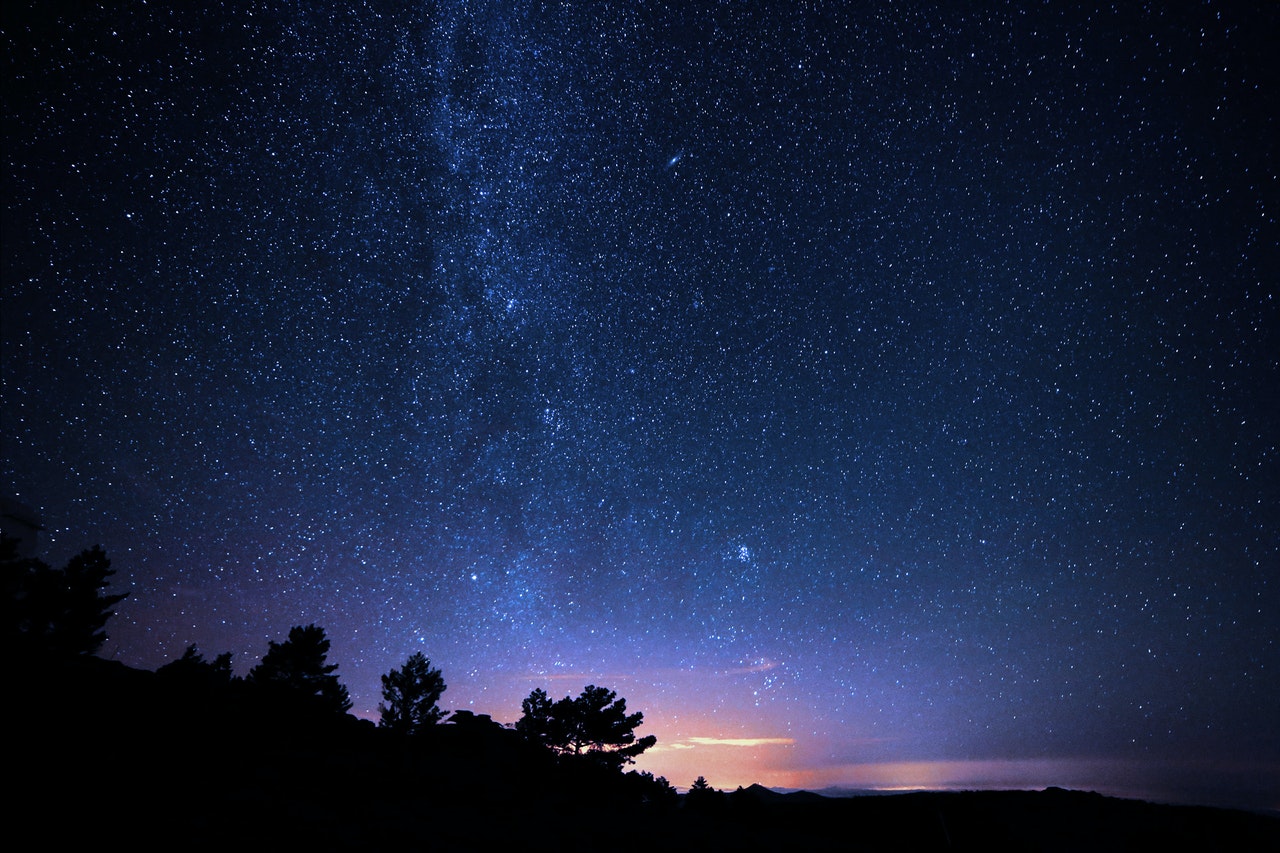Hello October 2021 🍂!
It is now officially Autumn in the Northern Hemisphere and – thanks to its darker evenings and earlier sunsets – a perfect opportunity for stargazing! Unfortunately, Autumn also brings colder and usually wetter weather, so make sure to check the Astronomy forecast and put on some extra layers before heading out to count the stars.
Below you will find the calendar of October 2021 stargazing events to look forward to! Clear skies!
6 October: New Moon
The Moonless night of the New Moon is a perfect time to look out for planets, stray meteors and not-too-bright stars.
8-9 October: Draconids peak
The Draconid meteor shower might not be the most abundant of the annual showers, but with some luck and patience you can expect to spot 10 or so shooting stars every hour. Well worth a try!
9-10 October: Venus and Moon Conjunction
Venus and the Moon will appear close by in the sky after the sunset.
13 October: First Quarter Moon
Step outside to see a half-Moon (left half in the Southern Hemisphere and right half in the Northern Hemisphere) in the sky!
13-15 October: The Moon next to Jupiter and Saturn
Watch out for the Moon – Saturn Conjunction in the evening of October 13th and Moon – Jupiter Conjunction in the evening of October 15th. On October 14th the Moon will appear in between the two gas giants.
16 October: International Observe the Moon Night
OK, technically not a stargazing event, but an annual celebration, this is the night when everybody is encouraged to step outside to admire our beautiful natural satellite. Because…why not? On this day in 2021, 87% of the Moon ’s surface will be illuminated by the Sun – a great opportunity to try your hand at astrophotography. Here is a great Lunar Photography Guide for beginners!
20 October: Full ‘Hunter’s’ Moon
Check the Moonrise and Moonset time in your location to make sure you don’t miss it!
21 October: Orionid Meteor Shower peak
The Orionid meteors are the debris left over by the famous Halley’s Comet, the only comet with an orbital period short enough so that one can see it twice in their lifetime! Unfortunately, this year the shower will peak right after the Full Moon so that all but the brightest meteors will be lost in the Moonlight!
To find out more about this month’s meteor showers, check out our Blog post It is going to rain stars this month: Draconids and Orionids October showers!
28 October: Last Quarter Moon
Can you tell how this phase is different from the First Quarter Moon?
31 October: End of British Summer Time
At 2 AM on the last Sunday in October the clocks go back one hour; from that moment till March 27, 2022 the UK will be on Greenwich Mean Time (GMT). Plan accordingly!
Do you have you favourite stargazing season? Which celestial object do you enjoy observing the most? Let us know in the comments below!
Author: Irina Vladimirova
Irina Vladimorova is a presenter at WonderDome Planetarium and a regular contributor to WonderDome Astronomy Blog. She holds a degree in Astrophysics and a special place in her heart for planetary science.


